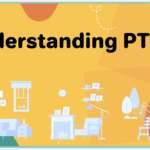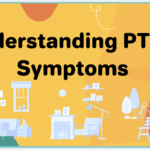Understanding Mental Health Stigma
Mental health stigma refers to the negative attitudes and beliefs that society holds regarding individuals who experience mental health issues. In the context of military veterans, this stigma can manifest in several forms, including social stigma, self-stigma, and institutional stigma. Social stigma involves the prejudiced opinions and discrimination from peers and the broader community, which can lead veterans to feel isolated and misunderstood. Self-stigma, on the other hand, occurs when veterans internalize these negative beliefs, leading to diminished self-esteem and reluctance to seek help. Lastly, institutional stigma pertains to the systemic barriers within organizations, including the military and healthcare systems, that may discourage veterans from obtaining necessary mental health services.
The prevalence of mental health issues among the UK military community is significant, with reports indicating that veterans are at an increased risk for conditions such as post-traumatic stress disorder (PTSD), anxiety, and depression. These mental health challenges are often compounded by the stigma surrounding them. Misconceptions such as the belief that seeking help signifies weakness or that mental health conditions are a personal failing can deter veterans from presenting their issues and accessing treatment. Furthermore, many individuals may erroneously think that veterans are immune to mental health struggles due to their military training, overlooking the reality of trauma and stress they may have encountered during their service. Such misunderstandings contribute to a pervasive culture of silence, where veterans feel disempowered in discussing their experiences and challenges.
Overall, understanding mental health stigma is crucial for addressing the barriers that prevent veterans from receiving the help they need. By recognizing the different forms of stigma and the misconceptions associated with mental health issues, we can foster a supportive environment that encourages open dialogue and facilitates access to appropriate care for those who have served.
The Impact of Stigma on Veterans
Mental health stigma profoundly affects veterans, significantly influencing their overall wellbeing. This stigma often manifests as negative perceptions and stereotypes surrounding mental health issues, which can deter individuals from seeking the help they need. Many veterans worry about being judged, ridiculed, or perceived as weak if they openly discuss their mental health struggles. This fear can lead to avoidance of professional assistance, resulting in untreated mental health conditions such as post-traumatic stress disorder (PTSD), depression, and anxiety.
The consequences of such reluctance are staggering. By not accessing necessary treatment, veterans are more likely to experience exacerbated symptoms, leading to deteriorating mental health. Research indicates that veterans facing stigma are at a higher risk of substance misuse as a coping mechanism, further complicating their mental health issues. Furthermore, the social implications of stigma cannot be ignored, as many veterans may isolate themselves from peers and family due to the fear of being judged. This isolation can foster a sense of loneliness, leading to deeper psychological ramifications.
Personal stories from veterans illustrate these challenges poignantly. For instance, one veteran shared how the stigma surrounding mental health made him feel alienated from his community. He delayed seeking help for years, convinced that his experiences would provoke judgment. Eventually, he found that discussing his struggles with trusted friends was liberating, highlighting the importance of supportive networks. Statistical data also emphasizes the severity of the issue; a significant percentage of veterans report feeling that society does not understand their mental health challenges, illustrating a critical need for change.
Ultimately, addressing the stigma surrounding mental health in the veteran community is vital to improving their quality of life. Recognizing these impacts can pave the way for increased support and resources, fostering an environment where veterans feel safe to seek help and share their experiences without fear.
Overview of the End the Stigma Campaign
The End the Stigma Campaign is a vital initiative aimed at addressing the prevalent mental health stigma faced by veterans in the United Kingdom. Recognizing that many former servicemen and women grapple with mental health challenges, this campaign seeks to foster an environment where open discussions about these issues are not only accepted but encouraged. Its primary aims focus on raising awareness, educating the public, and championing the mental well-being of veterans, thereby promoting both individual resilience and community support.
One of the key facets of the campaign is its commitment to organizing various initiatives and events that draw attention to mental health concerns among veterans. These initiatives range from workshops and seminars to public events and online forums, all structured to facilitate communication, share experiences, and provide valuable resources for support. By creating safe spaces for veterans to express their feelings and challenges, the campaign aims to dismantle the barriers of silence and shame that often accompany mental health issues.
To ensure the campaign’s objectives are met effectively, collaboration plays a crucial role. Several organizations, including veteran support groups and mental health charities, are actively involved in this campaign, contributing resources, expertise, and outreach capabilities. Such partnerships are essential in amplifying the campaign’s message and expanding its reach. They also provide veterans with a network of support and access to vital mental health services. In essence, the End the Stigma Campaign serves as a beacon of hope for veterans struggling with mental health challenges, promoting understanding and acceptance through concerted efforts across various sectors.
How to Get Involved in the Campaign
As the End the Stigma Campaign progresses, individuals looking to contribute to this vital initiative have several avenues available to them. Participating in the campaign not only raises awareness about mental health issues among UK veterans but also creates a supportive community for those who have served. Here are some practical ways to engage with the campaign.
One of the most effective means of getting involved is through volunteering. Campaign organisers often seek individuals to assist with various tasks, from administrative duties to direct engagement with veterans. Interested individuals can visit the campaign’s official website to find current volunteer opportunities. This direct involvement enables personal connections and fosters a sense of contribution to a significant cause.
Attending events is another impactful way to participate in the End the Stigma Campaign. Throughout the year, the campaign holds numerous workshops, seminars, and community gatherings aimed at raising awareness and providing education on mental health issues faced by veterans. By attending these events, participants not only gain valuable knowledge but also have the chance to meet like-minded individuals and professionals dedicated to the same cause. To stay informed about upcoming events, individuals can subscribe to newsletters or follow the campaign’s social media pages.
Sharing personal experiences also plays a critical role in combating mental health stigma. By discussing their own journeys, participants can provide invaluable support to fellow veterans who may feel isolated. Engaging in open dialogue can foster understanding and reduce the stigma surrounding mental health challenges. Those interested in sharing their experiences should connect with campaign organisers to learn how to effectively contribute their narratives, ensuring they reach those who need to hear them.
Overall, getting involved in the End the Stigma Campaign is both meaningful and rewarding. By volunteering, attending events, and sharing experiences, individuals can help create a more inclusive environment for UK veterans facing mental health challenges.
The Role of Community Support in Tackling Stigma
Community support serves as a pivotal element in the fight against mental health stigma, particularly among veterans in the UK. Peer support networks, local groups, and veterans’ organisations play a critical role in fostering a nurturing environment where individuals feel safe to discuss their mental health challenges. The shared experiences of veterans create a unique understanding within these communities, which can significantly reduce feelings of isolation and shame related to mental health struggles.
Many successful community initiatives have emerged to tackle stigma head-on. For instance, local organisations often host awareness campaigns and workshops aimed at educating both veterans and the general public about mental health issues, effectively breaking down preconceived notions and biases. These initiatives not only inform participants about the realities of mental health but also provide practical resources for those in need, thus encouraging individuals to seek help without the fear of judgement.
Furthermore, peer support groups are particularly beneficial as they allow veterans to connect with others who have similar experiences and challenges. The act of sharing personal stories can be incredibly therapeutic and provides a platform where individuals can validate each other’s feelings and experiences. In many cases, this open dialogue can lead to a greater understanding of mental health conditions and promote empathy within the community, further reducing stigma.
Additionally, veterans’ organisations often collaborate with mental health professionals to create programs tailored specifically for the needs of veterans. These collaborations help in designing effective interventions and support mechanisms that resonate with the veteran population, encouraging more individuals to engage with mental health services. Such community-oriented efforts cultivate an atmosphere of acceptance and understanding, imperative in normalising conversations around mental health, and ultimately play a vital role in dismantling the stigma associated with seeking help.
Raising Awareness and Education Strategies
The End the Stigma Campaign employs a multifaceted approach to raise awareness and educate both veterans and the general public regarding mental health issues. One of the core strategies utilized is the effective use of social media platforms. Through targeted campaigns on networks such as Twitter, Facebook, and Instagram, the initiative disseminates informative content aimed at dispelling myths and misconceptions related to mental health in the military context. Engaging visuals, poignant stories from veterans, and factual posts are designed to resonate with audiences, thereby creating a ripple effect of community engagement and dialogue.
Workshops and seminars constitute another critical avenue through which the campaign fosters understanding and support. These events provide veterans with essential tools to manage mental health challenges while promoting an environment where openly discussing mental health concerns is normalized. Participants engage in informative sessions led by mental health professionals, enabling them to gain insights into common issues such as PTSD, depression, and anxiety that may arise as a result of their service. By fostering dialogue, these workshops facilitate peer support networks, empowering veterans to seek help without fear of judgment.
Furthermore, traditional media plays a significant role in the campaign’s outreach efforts. Collaborations with newspapers, radio stations, and television networks ensure that mental health awareness reaches a broader audience. Through compelling feature stories, interviews with veterans, and expert opinions shared across various media channels, the campaign aims to penetrate deep-rooted societal stigmas surrounding mental health. By depicting veterans’ experiences candidly, such engagements humanize the narrative surrounding mental health, ultimately encouraging both veterans and the public to engage in conversations and support systems that promote mental wellness.
Personal Testimonials: Voices of Veterans
The journey to address mental health challenges among UK veterans often begins with personal stories that resonate and connect with others. Veterans from diverse backgrounds and service experiences have faced the intricate reality of mental health issues, and their testimonies provide a powerful glimpse into their struggles and triumphs. One veteran, John, a former infantry soldier, shared his experience with depression following his return from active service. He described feelings of isolation and despair, compounded by the stigma surrounding mental health within the military community. John felt hesitant to seek help, fearing judgment from his peers. It was through the encouragement of a fellow veteran that he finally found the courage to reach out to a mental health professional, significantly improving his well-being.
Similarly, Sarah, a Royal Navy veteran, recounted her battle with post-traumatic stress disorder (PTSD) after serving in a conflict zone. She highlighted the pervasive stigma that often leads veterans to suffer in silence, fearing that reaching out for support might portray them as weak. Sarah’s turning point came when she participated in a mental health workshop tailored for veterans. This initiative not only provided her valuable coping strategies but also helped her connect with others who shared similar experiences. The newfound camaraderie among peers helped to mitigate the feelings of shame that had been crippling her for years.
These testimonials illuminate the urgency of breaking the stigma surrounding mental health among veterans. Each personal story highlights the importance of open dialogue and sharing experiences, providing a glimmer of hope for those still struggling in silence. By amplifying their voices, we honor their journey and the collective fight against the stigma that often hinders recovery. It is this earnest storytelling that fosters empathy and encourages support, reminding us that no veteran should navigate the challenges of mental health alone.
How Employers and Organisations Can Help
Employers and organisations play a critical role in supporting the mental health of UK veterans, who may face unique challenges when transitioning from military to civilian life. Creating an inclusive workplace environment is paramount. This begins with fostering a culture that values diversity and openly discusses mental health issues. By promoting a supportive atmosphere, employers can help reduce the stigma often associated with mental health problems, encouraging veterans to seek help without fear of judgment or repercussions.
Implementing mental health training programs is also essential. Such programs equip employees, including management, with the knowledge and skills to recognize signs of mental health issues in their colleagues, specifically veterans who may be coping with post-traumatic stress or other conditions. Training should encompass effective communication strategies, crisis intervention techniques, and awareness of available mental health resources. This proactive approach not only empowers individuals within the organisation but also creates a more informed and compassionate work environment.
Furthermore, organisations should formulate and promote policies aimed at reducing stigma surrounding mental health issues. These policies may include clear guidelines for mental health support, flexible working arrangements for individuals undergoing treatment, and confidential pathways for accessing help. By ensuring that these initiatives are communicated effectively to all employees, businesses can demonstrate their commitment to mental health advocacy. Additionally, when organisations visibly support mental health initiatives, they champion a broader cultural shift—one that encourages veterans and all employees to prioritize their mental well-being.
In conclusion, the responsibility of employers to support veterans’ mental health cannot be overstated. By fostering an inclusive workplace, implementing effective training programs, and promoting supportive policies, organisations can significantly mitigate the stigma surrounding mental health. This commitment not only benefits veterans but contributes to a healthier, more productive workforce overall.
Looking Forward: The Future of the Campaign
The End the Stigma Campaign is increasingly recognized as a vital initiative aimed at dismantling the barriers faced by UK veterans dealing with mental health issues. As we look forward, the campaign is poised to expand its reach and impact by amplifying awareness and fostering acceptance around mental health challenges. Key developments are anticipated as engagement with both veterans and the general public deepens, promoting a culture of understanding rather than judgment.
One of the significant challenges ahead is the need to address the ingrained perceptions of mental health within military contexts. Many veterans struggle with the stigma associated with vulnerability and mental health discussions, often feeling that seeking help might illustrate weakness. Overcoming these deeply rooted beliefs requires sustained public discourse and outreach efforts. The campaign will likely implement innovative strategies through targeted awareness programs and collaborations with mental health professionals to educate both veterans and their communities.
To support this cause, individuals can play a vital role by advocating for mental health education and sharing personal experiences. Participation in community events focused on mental health can also help foster a supportive environment. Moreover, engaging with charities and organizations committed to veteran welfare serves to amplify the campaign’s message. Social media platforms present an opportunity for people to share their experiences and insights, further dismantling the stigma surrounding mental health within the veteran community.
As the End the Stigma Campaign evolves, it will continue to seek new partnerships and innovative approaches to enhance veterans’ mental health support. By building a comprehensive network of understanding and resources, the campaign aims to ensure that mental health remains a priority for veterans, ultimately leading to improved well-being and resilience among those who have served the country.





